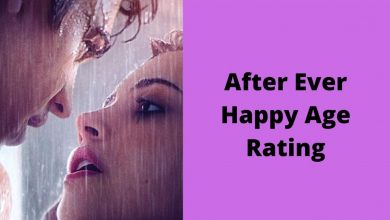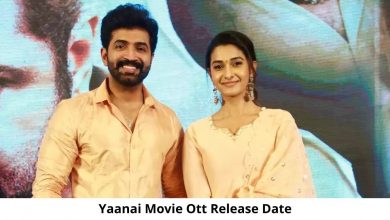Sheila Heti: On God, art critics and the ‘very lucky experience to have been a person’
When Toronto writer Sheila Heti comes out with a new book, the anticipation creates a cultural moment. Her books “Motherhood” and “How Should a Person Be?” were both personal and philosophical. Her latest book “Pure Colour” begins with God considering the first draft of his creation, which is what we’re living in now. In order to take a considered look, he splits into critics born from three eggs: a bird egg, interested in beauty, order, harmony and meaning; a fish egg where the most important thing isn’t the individual egg “but the condition of the many”; and a bear egg — yep, suspend disbelief — and bears claim a few people to love and protect. We spoke to Heti by phone, starting with a bit of an experiment she undertook for the New York Times.
You’ve recently written a 10-part series for the NYT that serializes your diaries. How does that work? What did you learn?
It was almost 10 years of diaries from my mid-20s to my early 30s; 500,000 words. And I thought, cool. What’s here that I can learn from? There’s all this writing, there must be some information in it for me. I started playing around with it. I put it into Excel and alphabetized it, and then started editing it and trying to pare away and find the essence, of those 10 years or the self that I was. The patterns and repetitions and themes. And I started discovering all sorts of interesting things. Like, you might have 10 women in your life, but there’s three archetypes of women that you’re drawn to as friends or three archetypes of men that you’re always getting involved with in different ways. Life can feel so random and disconnected and arbitrary. And then when you start looking at it closely, you see that there’s these nested repetitions and patterns.
Your earlier books were seen as autofiction and part of that movement.
I never really had much connection to that term autofiction, When I put out “How Should a Person Be?” that word was not in vogue at all. I feel that word came into vogue a few years after my book came out. That word doesn’t really mean anything to me. It doesn’t direct me in any way or interest me generally. I just like good writing. And I think everything comes from the self. Novels all come from the self so I don’t really find that to be a useful category.
So this new novel, “Pure Colour,” is very much a novel about grief. Mira, the main character, has lost her father. When you started the book in 2018 did you set out to write about grief?
My father passed away about a year into my work. He died at the end of 2018, in October. The book kind of changed and started incorporating that new place that I was in, and those new thoughts and feelings I was having. I usually don’t have a very clear idea of what the final book is going to be; I sort of make my way towards it. It’s always revising and changing and adapting and responding to what’s going on in my life and in my thoughts and feelings. And so the same was true of this book.
This book seems to be much more introspective than some of your books, the tone is different.
I think they’re all pretty introspective. Maybe this one’s a little lonelier, but I think that’s where grief puts you. It sort of separates you from other people that aren’t going through what you’re going through; it separates you from the world in some way. You’re sort of encased in cotton or something. Everyone sort of recedes and your daily life feels like it’s at a distance. So I think that’s just where I was. I felt very separate from my friends. And it wasn’t because of the pandemic, it was because of grief. I mean, grief because most of the book was written before the pandemic.
There’s a point where Mira is in a liminal world with her father — they’re both in a leaf — which he is transformed into after his death. There’s this idea throughout that nothing in the universe truly disappears, souls don’t disappear. There are very profound spiritual elements. Was this something you were exploring?
I’d always, say, thought about death, when a person dies, that’s it, they’re gone. It’s the end of them, and anything else is just sort of wishful thinking and trying to make ourselves feel better, trying to coddle ourselves. But that’s not what I experienced when my dad died. I was really, really shocked. Obviously a transformation is undergone in death, but it didn’t feel as final or as total or as flat as I imagined. They still feel like they’re here in some way. They’re not physically here, you can’t have any more experiences with them. But my father just didn’t feel so far away as I would have imagined. I had to take that feeling seriously. When you write, you’re trying to put down what you observe about reality. And I was observing something about reality that came as a real surprise to me.
You start the book with God considering his first draft of the world. And then you introduce three critics: the bird and the fish and the bear all hatching from eggs. We know this isn’t going to be your average story — there’s a real playfulness to it.
The motivation behind the book is not so dissimilar from the motivation of telling a story to a child before they go to bed. When you come to the end, you sort of see that it is, in some ways, a bedtime story. And when you’re telling a story to a kid, those aren’t the kinds of things that you’re concerned about, you’re just making it up as you go along. It seemed very clean … there’s these three eggs in the sky, and the bear comes out of one and the bird comes out the other and the fish comes out of the other. So it’s just a better picture that way. It’s cleaner. It’s a story. It’s not science, it’s art. It doesn’t have to be right, scientifically accurate.
There’s a sense of fable about it.
I like parable and fable and fairy tale. I love all those forms. I think they tell us so much. They resonate on a different register than straight realism. And I like that register, that more imaginative, deeper, stranger, more childlike, full of wonder, register. Realism is what the novel does well. There’s so many other ways (than the novel) of telling stories that are just as beautiful or important.
It speaks to the idea of creation, the idea that we are constantly rewriting the stories that we understand.
And if you are writing about God, and God as an artist, you can’t really write like a realist novel. I mean, you could, but it just didn’t seem like the right mode for that. That would have taken a lot of gall to try to portray God in a realist novel.
So why start off with God?
It sort of sets the stage. It’s like the curtains open on the play, opening on the world, and then you see the world behind the curtains. And that’s the world of the story.
On the back of the book, it’s described as a contemporary Bible. Do you see it that way?
That’s what the publisher wrote; it would be a little grand for me to have said that. But I guess in the sense it’s a creation story. And it’s about how to live, and how we all live together and how we all fit together in (the) world. The Bible has so many rules for how to live and this book is much more (about) questions and what it feels like when you’re a little bit suspended from reality.
Mira enrols in a program to become an art critic. Why did you want to take that on?
I think the critic is sort of an interesting figure in art history. They are, or they want to be, the arbiters of what makes it into art history. They want to be the authorities on art. I just always had this question about critics. Are they the ones that determine what art sticks around? Or is it the people? Is it the Pope? Is it the kings? Are the art critics important or do they just elect themselves as being important? I have a lot of questions about criticism and find it very interesting. I always ended up asking myself, why do we engage in that? Why is it important? Not that I think it’s not important. I wanted to make (Mira) a critic, I guess, because God created critics (to look at) his draft of creation. So it just seemed right to have her go to critic school.
It seems, in the rewriting, in the perfecting of that creation, something gets lost.
Well you experience that when you make art. That first draft has a kind of vitality, even if it’s not perfect, it has something that your final draft doesn’t have. I’m always trying to keep that first draft feeling in the book, that life, that first spark, that sense of trying to discover. You don’t want it so polished that it loses that spark of life that caused you to write it.
In the end, maybe it’s not about making everything perfect. Sometimes just getting through it is enough. There’s a hopefulness to that.
I think I’m a very positive person. To me life seems on balance more good than bad and having lived seems more of a good than a bad. I’m sure everyone doesn’t feel that way, but I do. I think it’s very interesting to be a consciousness in the body. You don’t perfect anything in life and there’s no winning, and there’s no there’s no check mark or grade at the end. Getting through it is enough. More than enough. It’s a very lucky experience to have been a person.
JOIN THE CONVERSATION





